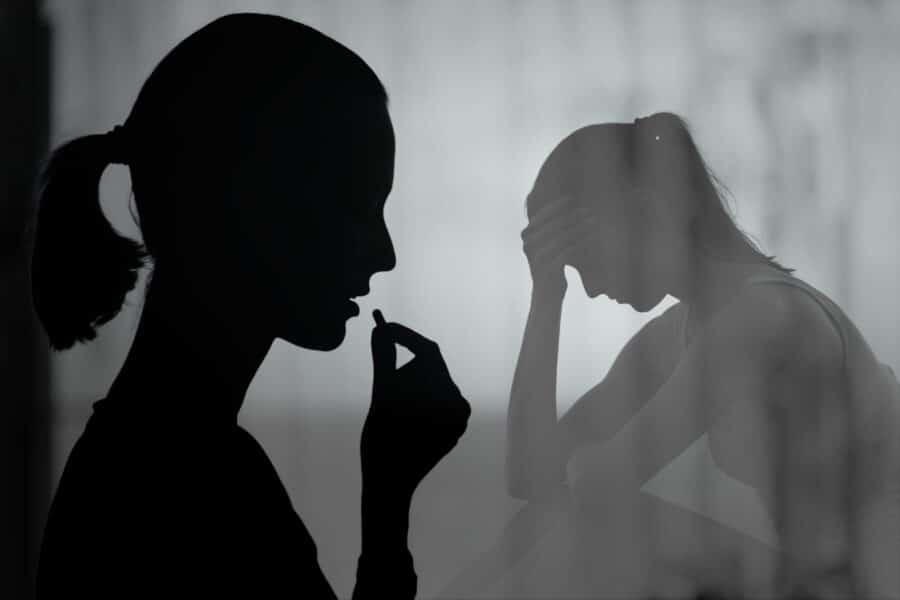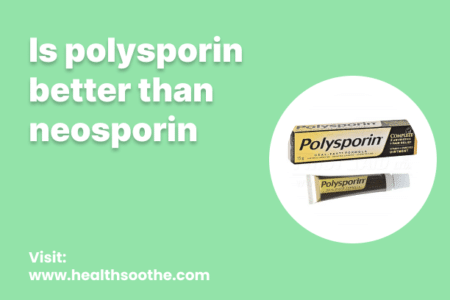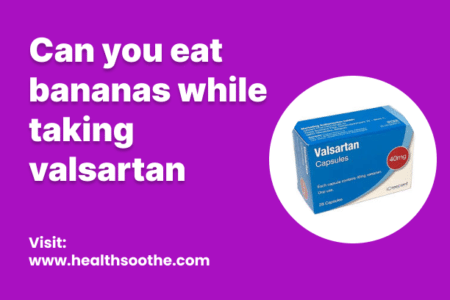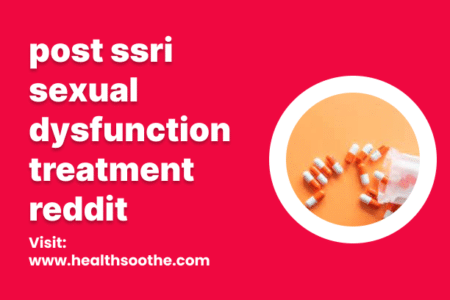If you’ve been diagnosed with drug addiction, you should begin your recovery journey as soon as possible. You must consult with your healthcare providers on the most appropriate step. They’re in a better position to guide you. Remember, the recovery process is different for everyone. Thus, you’ll need precision and determination to get through. Read along for insights on how to overcome drug addiction.
Health Effects Of Abusing Drugs
Being a drug addict takes a toll on your health. Here are some of the health effects of drug addiction:
- Weakened immune system
- Increased strain on your liver
- Mental health conditions
- Loss of memory
- Poor concentration
Substance abuse has long-term and short-term effects that result in severe health conditions. As such, it’s essential to find ways to overcome drug addiction. They include the following:
1. Find A Recovery Center
Many people wonder, “Are rehab centers effective?” The answer is that rehab centers can be very effective in helping individuals recover from addiction and substance abuse. The best thing you can do for your healing process is to receive the best treatment and care possible. Finding a rehabilitation center should top your list if you are struggling with addiction or substance abuse. Treatment centers are excellent at providing evidence-based therapies and creating a supportive environment that can help instill and change positive habits. You can easily find a treatment center online or by asking for recommendations from friends and family.
You must ensure the treatment center is accredited to offer drug addiction treatment services. Visit their website and read reviews from previous clients. This way, you’ll be sure that enrolling in their center will be worth it. If you’re looking for a rehabilitation center that can guide you to a full recovery, you may want to check out https://westcoastrecoverycenters.com/ or other sites.
2. Understand Your Treatment Options
Healthcare providers have developed several treatment options for drug addicts. At Leora Ohio addiction treatmen help individual overcome addiction and behavioral health issues. Every patient has a unique struggle, thus the need for different treatment choices. It’s vital to understand your treatment options so that it can be easy to remain committed during your recovery. Here are some of the treatment options:
- Detoxification: This treatment aims to purge your body of all the drugs. During this phase, you’ll have withdrawal symptoms that can be managed through other options. It’s best to undergo the treatment safely since some symptoms may result in severe life-threatening effects.
- Biofeedback Treatment: In the treatment, you’re made to understand the involuntary processes in your body. An electronic sensor is placed on your skin to monitor your brain’s activity. From the patterns, your therapists suggest psychological techniques that come in handy in your recovery process.
- Cognitive Behavioral Therapy: During your treatment, maintaining sobriety is essential. This treatment option addresses disturbing thoughts that’d affect your recovery journey. For instance, you might have suicidal thoughts from depression. You can also identify triggers and develop coping skills to avoid a relapse. The treatment can be done in a group where the therapist leads a session.
- Rational Emotive Behavioral Therapy (REBT): This treatment option recognizes the power of thinking, which helps combat feelings of self-defeat.
- Medication Treatment: You can be given some prescription medicine to control your cravings and improve your mood.
- 12 -Step Facilitation: Substance abuse can result in several other consequences. This treatment option considers all the unfavorable effects of drug addiction.
Knowing the typical treatment options is critical since you can discuss with your physician what works best. During the treatment process, it’s essential to stick to the plan so that you can get consistent results. Moreover, it’s the only way your healthcare provider can tell if the treatment is working. If it doesn’t work, they can change to another option.
3. Hire A Therapist
As indicated earlier, the journey can be daunting if you embark on it alone. So, it’s better to hire a therapist. A therapist can guide you to a full recovery. You must have someone to talk to when the cravings strike hard. It’s common for recovering patients to have underlying conditions or get depressed. The best option is to connect with someone knowledgeable in such matters. They suggest you see a doctor who can give you medical prescriptions to overcome your conditions.
If you’re depressed, they’ll walk you through fighting depression. Without a therapist, you can easily go back to your old habits. Thus, talking to one another as you take your treatment programs is essential. In most cases, treatment and recovery centers provide a therapist for every patient. You can build a long-lasting working relationship with your therapist, who can help you even after your treatment ends.
4. Enroll In A Treatment Program
Enrolling in a treatment program is vital if you’re committed to your recovery. Remember, the longer the program, the more effective the results. Changing your habit can be challenging, and it’s not a walk in the park. It takes time to break an old habit. Thus, the 60–90-day treatment program should suffice.
Different recovery centers offer unique treatment programs. So, you’d want to do your due diligence and find one that works best for your case. Consider the following treatment programs:
- Residential Treatment: You’ll have to live at the facility for several months if you enroll in this program. Thus, you must find a facility near you so your family and friends can visit as often as they wish. However, family and friend visits must be allowed by the facility. It’s so because some of the triggers can be family responsibilities; thus, if they show up at your facility unannounced, they might affect your treatment progress.
- Outpatient Treatment: In this program, you don’t have to live in the facility. You and your healthcare provider devise a schedule around school or work times.
- Sober Living Communities: This program involves living with peer patients. It’s essential for moral support. They’ll elevate your spirit and offer coping mechanisms.
For the treatment program to work, you must be intentional. You must create time and attend the sessions when required. If you don’t want to gamble, it’d be best to go for residential or inpatient treatment programs. With such programs, it’s hard to relapse.
5. Prepare For Change
Change is paramount when dealing with drug addiction. You must avoid anything that could lead you back to your old ways. It’s essential to prepare in advance for the treatment to work. For instance, you’ll need to clean your room for any remains of drugs. It helps you take care of your triggers. The last thing you’d want is to return to all your old habits after incurring the cost of treatment or sparing your time for the program. For you to adapt to the change that leads to sobriety, you should:
- Ask for help.
- Avoid leaving on your own for the first few months.
- Have regular sessions or join recovery groups.
- Get involved actively in your recovery journey.
- Change your location to avoid plumbing into people who may trigger your cravings.
You must adhere to the changes that prove successful in your recovery journey. Thus, resources that can help you adapt to change when handling your drug addiction problems come in handy.
6. Manage Withdrawal Symptoms
It’s natural for you to get the effects of withdrawal symptoms. However overwhelming they can be, it’s necessary to avoid falling back. Mark you, the drugs have a high dependency that can make you sick if you go for a day without them.
On the other hand, a sudden cut on the drugs leads your body to intense withdrawal symptoms. The intensity and duration of the withdrawal symptoms vary significantly. It means they’ll have different effects on patients. Here are some signs of withdrawal symptoms to note:
- Change in appetite
- Fatigue
- Irritability
- Headaches and migraines
- Tremors
- Vomiting
- Sweating profusely
- Sleeping difficulties
- Muscle pain
These are just the tip of the iceberg. You can have several other symptoms. It’s essential to always communicate to your therapist or a caregiver any changes that you feel in your body. Some of the withdrawal symptoms can be life-threatening. Therefore, they require immediate medical attention if they occur.
7. Seek Support
The journey to recovery involves several parties. Thus, it’d help to team up with supportive people to guarantee full recovery. Again, most relapses happen after treatment. It’s when you’re left alone to practice what you learned during your treatment. Unlike the centers where your activities are monitored, you’re responsible for making decisions.
On this account, it’s essential to find help and support through the process. For instance, most treatment centers will offer aftercare even after you complete the treatment program. Some will visit your home to help you set up a recovery environment. Others have recovery apps that keep you and your therapist in touch. You can record your daily progress on the app so your therapist can identify how you’re coping with what you learned during your treatment.
Thus, it’s essential to bring your family and friends on board. They’ll give you moral support and assist you in adjusting to your new routine. Seeking support ensures you’re responsible and can keep up with the skills learned.
8. Find Distractors
Another way to ensure you overcome addiction is finding distractors. It involves a series of activities that will keep you engaged. For instance, you can search for new hobbies that distract you by occupying most of your time.
Most addiction patients are idle and hence have the luxury of exploring drugs. For this reason, it’s recommended that recovery patients find new hobbies, venture into careers, enroll in classes, and explore their talents. This way, most of the time they’d spend dealing drugs goes into constructive activities.
9. Stick To Your Treatment Plan
It’s in your best interest to stick to your treatment plan. This way, you’ll avoid a relapse. It’s so unfortunate for you to get back to your old ways after undergoing treatment. Remember, drug addiction treatment is costly. Again, you spend time undergoing treatment. It’s only fair if you can make the most out of it rather than losing it altogether. You can incorporate some useful ways to ensure you stay on course. For efficient results, use the tips below:
- Keep up with the recommended doses.
- Track your symptoms and ask for help.
- Maintain a lifestyle change such as taking part in exercise and eating healthy diets.
- Maintain a working relationship with your therapist by attending all therapy sessions.
- Keep a record of your progress, as it motivates you to keep going
- Have an accountability partner; it can be a close friend, family member, or spouse.
Although adhering to the treatment plan can be challenging, it’s worth it. The success of your treatment plan relies on your ability to follow all the steps. Gradually you’ll make excellent progress, and soon you’ll find the expected results.
10. Fight Your Cravings
One thing about the recovery process is that you must fight your urges and triggers. It’s among the hardest phases of your recovery process. Remember, cravings are patterns stimulated by your environment, feelings, memories, and emotions. Thus, the first order of business should be avoiding triggering situations. It’s one of the proven strategic ways to fight relapse. Better yet, you should thoroughly clean up and throw away all your hidden drugs that could entice you to get into your old ways.
On the same note, it’d help if you learn new tricks that keep your cravings in check. For instance, you can have fruity drinks and water whenever your cravings kick in. This way, you’ll not succumb to the temptation to try the drugs.
11. Meditate
Taking time off to think about your life is essential for recovery. Meditating helps you cope with stress. As indicated earlier, one effect of drug addiction is severe mental health conditions. Meditation allows you to focus on the process rather than keep your thoughts crowded with guilt and depression. You can enroll in a yoga class since the exercises involve meditation. It also helps you relax as you build a healthy body and mind.
Some other benefits of using meditation as a way to overcome drug addiction include the following:
- Improves your attention span
- Reduces emotional instability
- Decreases insomnia
- Reduces chances of post-acute withdrawal syndrome. (These are the withdrawal symptoms that appear after a week or two of treatment begins)
Having some time to meditate comes in handy for your treatment program. It helps you feel at peace; thus, be open to the treatment.
Conclusion
Overcoming drug addiction is a welcome resolution, and you can make it with genuine intention. But note that the recovery journey isn’t always smooth sailing. To this end, you must cooperate with your caregivers to make the most out of the process. It’s essential to seek professional guidance before initiating the process. Ensure you partner with excellent treatment centers to enjoy several benefits. Besides, don’t be afraid to ask for help from your support groups, including your therapist, partner, or family members. Eventually, you’ll terminate your drug abuse habits and lead a sober and meaningful life.





